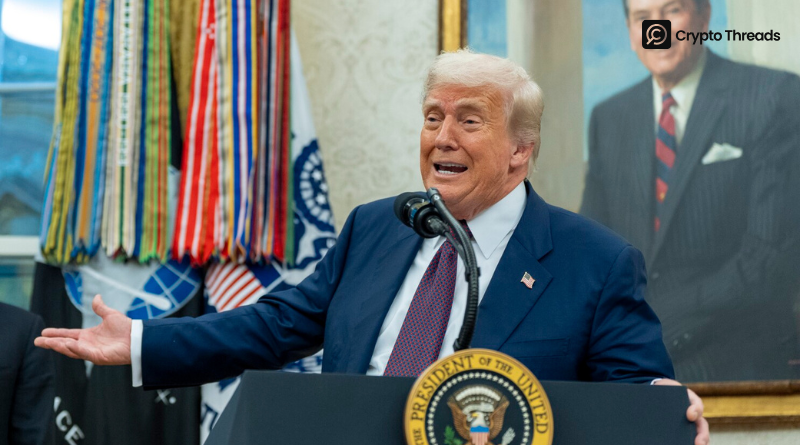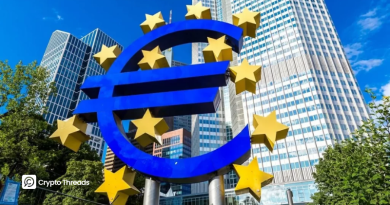Trump Signs Order to Investigate Political Discrimination by Banks
Key Takeaways:
- President Trump signed an executive order directing federal agencies to investigate allegations that banks have denied services based on political or religious beliefs.
- The order calls for reinstating affected customers and refers unresolved cases for possible legal action by the Department of Justice.
- Financial institutions argue that prior federal regulations, not bias, prompted service denials — especially for high-risk sectors like firearms and crypto.
- The Trump family and allies claim to have experienced debanking, although some claims remain unproven and are under litigation.
- Crypto companies and conservative groups have pushed the issue into the political spotlight, framing debanking as a civil liberties concern.
- The executive order echoes recent regulatory changes but positions Trump as a defender of politically marginalized banking customers.
Trump Orders Federal Investigation Into Political and Religious “Debanking”
President Donald Trump signed an executive order on Thursday instructing federal regulators to investigate cases where banks allegedly denied services to individuals or businesses based on their political or religious views rather than financial risk.
The order addresses what has become known as “debanking,” a broad term used to describe instances where people claim their bank accounts or loan applications were denied or closed for non-financial reasons. Trump’s directive tells federal agencies to investigate these complaints and make reasonable efforts to reinstate those affected. It also calls for certain unresolved cases to be referred to the Department of Justice for possible prosecution.
The move follows growing complaints from conservative groups, crypto companies, and gun-related businesses who claim they have been excluded from banking services due to their affiliations or industries. Trump’s order is seen as a response to these concerns, as he seeks to strengthen his support among these communities ahead of the upcoming election.
Major financial institutions have pushed back on accusations of political bias, saying their actions are driven by regulatory requirements. Many of these requirements originated during the Obama administration and were carried through both Trump’s first term and the Biden presidency. These include risk mitigation standards that caution banks against working with clients involved in heavy cash transactions, firearm-related businesses, or unregistered crypto dealings.
Interestingly, Trump’s executive order acknowledges that previous federal guidance may have led banks to deny services to customers in controversial industries. The order frames this as a failure of regulation, not necessarily a deliberate effort by banks to suppress political viewpoints.
Debanking Moves Into Mainstream Debate as Crypto and Conservatives Push Back
What was once considered a niche issue has now moved into mainstream political discourse. While early complaints came primarily from firearm retailers and right-wing advocacy groups, recent years have seen tech entrepreneurs and crypto firms join the list of those alleging unfair treatment by banks.
The issue gained more visibility after the Trump family itself made claims of being debanked. In a recent interview with CNBC, Trump alleged that JPMorgan Chase and Bank of America rejected more than 1 billion dollars in deposits from the Trump Organization following his first term. He claimed he personally appealed to the CEOs of both banks but was turned down. Neither institution has confirmed nor commented on the allegations.
Separately, the Trump Organization filed a lawsuit against Capital One earlier this year for closing accounts after the January 6 Capitol riot. The bank denied wrongdoing and litigation is still ongoing.
The crypto industry, now a major political and financial force, has also expressed frustration over the lack of access to basic banking services. Several crypto firms claim they were unable to open business accounts or process payments despite operating legally. Their support for Trump’s 2024 campaign has helped bring the issue further into public attention.
While the executive order did not include specific data on how widespread debanking has become, the White House cited previous examples provided by Senate Republicans. These included reports of payment processors and banks scrutinizing customers who made legal purchases at gun stores or who used phrases like “Trump” or “MAGA” in transaction notes.
“These practices erode public trust in banking institutions and regulators, harm livelihoods, freeze payrolls, and impose significant financial burdens on law-abiding Americans,” the White House said in an official statement.
Some of the measures mentioned in the order were already underway. For instance, the Federal Reserve had earlier removed a rule requiring banks to notify regulators before accepting crypto-related clients. Trump’s order, however, signals a broader push to reframe access to banking as a civil liberties issue, one that his campaign will likely continue to spotlight.



